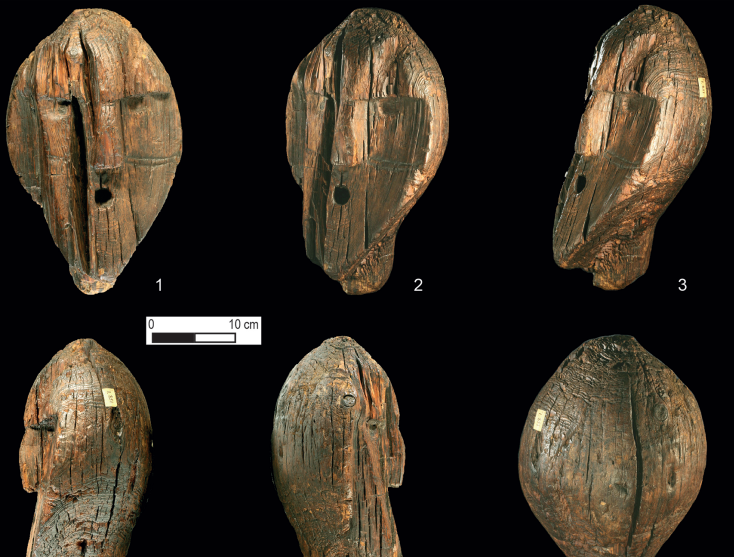
Updated |Humanity's understanding of and relationship with "evil" may be older than we previously believed. An engraved wooden figure uncovered in Russia recently underwent a new analysis that revealed eerie faces that experts believe may be the earliest depictions of demons. Carbon dating put the figure at around 11,600 years old, which means carving may have been one of man's first attempts to express the complex idea of dark, unseen forces.
The over-17-foot carving, called the Shigir Idol, was originally uncovered in Russia in 1894, but only recently, in a study published in Antiquity, have researchers revealed just how significant the discovery really was. Radiocarbon dating via an accelerator mass spectrometry process put the figure at around 11,600 years old. This means it predates farming cultures and was created by ancient hunter-gatherers not long after the last major ice age, Science Trends reported.
"Hunter-gatherers are often see as being primitive and their cultural traditions are underestimated," one of the researchers, archaeologist Thomas Terberger of Germany's University of Göttingen told Newsweek. "From that period of time in central and northern Europe we find only small decorated objects and some littler animal figurines made of amber. We could not believe that these hunter-gatherer-societies had such big wooden monuments."
Related: Ancient rock carvings discovered in Saudi Arabia hint at artists from faraway lands
In addition, the scientists believe the strange humanlike images carved into the wood may be depictions of demons or evil spirits. In fact, the carving has a total of seven human-like faces, all intricately hidden in the ancient artwork and all of which were slowly discovered over time as researchers further studied the mysterious woodwork.
The new study also suggests that the wooden idol was carved from a single giant log. The ancient hunter-gatherers who created the piece likely used chisels as well as the lower jaws of beavers to carve the intricate faces, Science Trends reported.
Related: Ancient Egypt: Sandstone carving in 2,000-year-old temple reveals new details about Alexander the Great's successor
Although the practice of religion has been traced back to around 70,000 years ago, archaeologists believe that rituals—a ceremony or action performed in a customary way—coincided with the onset of farming civilizations. However, this discovery suggests otherwise. The study's authors hypothesized that these demon carvings may have been used in rituals or were left to warn others about a certain area. They may have also been depictions of an ancient god, although that is not clear, according to Live Science. Terberger told Newsweek that the sculptures suggest that these gatherers had beliefs in gods, but they had a more general idea on helpful and powerful spirits rather than a single god.
"We have to conclude hunter-gatherers had complex rituals and expression of ideas," Terberger told Science. "Ritual doesn't start with farming but with hunter-gatherers."
This article has been updated with quotes from Thomas Terberger of the University of Göttingen.
Uncommon Knowledge
Newsweek is committed to challenging conventional wisdom and finding connections in the search for common ground.
Newsweek is committed to challenging conventional wisdom and finding connections in the search for common ground.
About the writer
To read how Newsweek uses AI as a newsroom tool, Click here.








